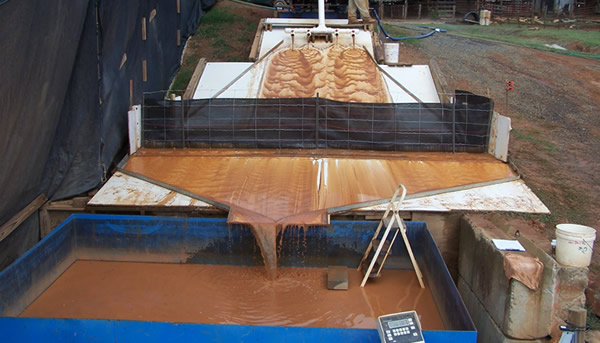The inaugural GeoU 2020 co-locates five high-level short courses. Four of the courses are concurrently held engineering classes and the fifth is a half-day marketing course for sales and marketing personnel working in the geosynthetics field. One of the signature engineering courses is “Geosynthetics in Stormwater Controls and Hydraulic Engineering.”
Joel Sprague, P.E., who serves as Senior Engineer and Technical Director for TRI Environmental’s South Carolina laboratories in Anderson and Greenville, South Carolina, will lead the stormwater controls education alongside hydraulic engineering expert Markus Wilke (HUESKER).
All activities will take place in Austin, Texas, 7 – 10 April 2020, beginning with an opening reception on April 7, two full days of education on April 8 and 9, and optional certification exams and the marketing course on the morning of April 10. A room block has been arranged at the Sonesta Bee Cave Austin Hotel, where the classes will be held.
Learn more about the courses and the networking opportunities. Register before January 31 to save $100 or more on the engineering classes.

STORMWATER CONTROLS & GEOSYNTHETICS
In this GeoU 2020 update, we take a look at the new stormwater controls and hydraulic engineering course designed by Joel Sprague. He is one of the most honored contemporary practitioners in erosion and sediment control with geosynthetics, including receiving an ASTM Award of Merit for his contributions to the field. The GeoU 2020 course tackles some of the most pressing issues in infrastructure management today.
Man-made changes to the environment, such as unrestricted development, overtaxed resources, removal of surface cover, paving, poor stewardship, and climate change impact on water levels and storm severity, have exposed soils to greater erosive forces. These processes substantially accelerate the rate of erosion to everything from construction sites to shorelines. Historically, materials such as straw and rock or hard armor systems of various sizes and designs have been used to resist erosion and retain sediments. However, the overuse of these approaches has revealed limited long-term performance. The incorporation of geosynthetic-enhanced systems is helping achieve greater balance temporary and long-term and applications.
RELATED: Wilke Joins GeoU 2020 Stormwater Course as Instructor
The “Geosynthetics in Stormwater Controls and Hydraulic Engineering” short course will provide detailed guidance on the relative performance, design, and installation of the full range of geosynthetic-enhanced erosion and sediment control systems being used. Additionally, geosynthetic-based stormwater controls being used for infiltration and pollutant removal will be introduced.

Topics include:
- Permanent post-construction stormwater management
- Steep slope stabilization
- Shoreline and coastal erosion protection
- Geosynthetic-enhanced rolled erosion control products (G-RECPs)
- Sediment retention devices (G-SRDs)
- Use of these materials in pollution prevention plans
- Porous plastic chambers beneath pavements
- Geotextile filters
- Use of geocells
- Fabric-formed revetments
- Much more
The course is best suited for engineering and design professionals who specify and work with erosion and sediment control materials. It is also relevant to contractors, regulatory and enforcement personnel, public works directors, utility companies, mining and ski area construction managers, foresters, landfill operators, and consultants.
An optional certification exam is included in the registration and available to take on the morning of April 10 for registrants who complete the April 8 and 9 stormwater controls coursework.
GEOU 2020 PROGRAM
A welcome reception will be held on the evening of April 7 at the Sonesta Bee Cave Austin Hotel (venue for all courses). Then, on April 8 and 9, four concurrent short courses will be held:
Geosynthetic Reinforced Soil Structure Design and Construction: Slopes, Walls and Roads
Instructors: Michael Bernardi, P.E. and Dr. Steve Perkins, P.E.
Optional certification exam included. (Exam on April 10 in the morning.)
QA/QC of Geosynthetic and Compacted Clay Lining Systems
Instructors: Mark Sieracke, P.E., Dr. Jeffrey Kuhn, P.E., and Sam Allen.
Optional certification exams (GCI-ICP) offered on April 10 in the morning. These exams require a proxy fee paid to the event and addition pre-registration with the Geosynthetic Institute.
Landfill Design Considerations in the Age of Sustainable Development
Instructors: Dr. George Koerner, P.E. and Abigail Gilson, MS, P.E.
Optional certification exam included. (Exam on April 10 in the morning.)
Geosynthetics in Stormwater Controls and Hydraulic Engineering
Instructor: C. Joel Sprague, P.E.
Optional certification exam included. (Exam on April 10 in the morning.)
On April 10 in the first half of the day, as certification exams are offered, a special Marketing in the Geosynthetics Field half-day short course will be offered.
Learn more about the courses and the networking opportunities. Register before January 31 to save $100 or more on the engineering classes.
[adsanity id=”96962″ align=”aligncenter”/]












